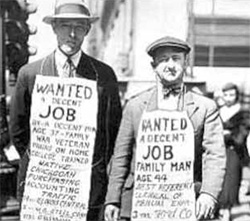
US jobs recovery?
Despite enthusiasm by equity investors in a US economic recovery, we have been reading a great deal about the changing face of the US workforce. Our view is that some of the changes – along with automation – have produced a rosier outlook for business profitability but possibly a less prosperous country. Nearly three times more people have left the workforce in the US than have found a job in the current recovery. Equally alarming is the fact that the growth in part-time employment represented 73.9 per cent of all new jobs created in the first half of 2013. The Obamacare healthcare coverage for employees adds much fuel to the trend favouring part-time jobs over full-time roles. Since 2000, part-time jobs have risen by more than 5 million, while full-time opportunities have declined. And temp jobs – those hired on a temporary basis by temp agencies – represent one-fifth of all job growth since the recession and now stand at 2.7 million.
At 28 million, an all-time high has been reached in the number of part-time jobs, and full-time jobs have yet to recover to their pre-2008 highs. The move to automation, more efficient technology and offshoring not only means less available working hours for the country’s constituents but they also get paid less.
In the short term, Australian business owners might look to the US and wish we didn’t have to pay $60/hour to a university student to pull coffees on a public holiday, but in the long run, many customers will be out of work and unable to afford to buy the products offered. At that point – and when US business runs out of international expansion opportunities – what will be the prospect for business? And this brief thought bubble isn’t considering the equality issues that arise.
kjleslie1
:
To me this is a consequence of past rises in business costs having driven their manufacturing offshore. Their current domestic deflationary environment plus the rising business costs in those offshore locals seems to be dragging manufacturing back to the U.S. Even if this is so, it will be some time before the quality jobs return and their prosperity begins to rise again–perhaps a decade. I don’t think Australia can look forward to any such resurgence in manufacturing, because our structure does not allow for the sort of deflation the U.S. is experiencing. Bringing our cost structure down will require fundamental change in the manner proposed by Project ERNA at erna4aus.org.
Roger Montgomery
:
Thanks Ken.
Giles Bate
:
I was reading this last night:
40% Of US Workers Now Earn Less Than 1968 Minimum Wage
I feel just a little worried.
Roger Montgomery
:
Hi Giles,
Thats useful but be careful on that site, it is only ever bearish. Stay bearish for long enough and you can eventually be right.